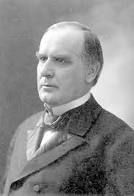Lehman Day: Making Fun of the Second Great Depression Crowd
By Dean Baker, Truthout
Monday, 14 September 2015 00:00
This week marks the seventh anniversary of the collapse of Lehman Brothers, the huge investment bank. This collapse set off the worldwide financial panic that brought Wall Street to its knees. The anniversary of this collapse, September 15, is the day set aside to ridicule the people who warned of a second Great Depression (SGD) if the Treasury Department and the Federal Reserve Board didn’t rescue the Wall Street banks.
Just to recount the basic story, there is no doubt that without a government bailout most of the big Wall Street banks would have gone under. Citigroup and Bank of America were both effectively bankrupt and remained on life support with hundreds of billions of dollars of government subsidized loans well into 2010. The remaining investment banks, Merrill Lynch, Morgan Stanley, and Goldman Sachs were all facing bank runs. These would have been unstoppable without the helping hand of big government. Many other financial institutions also would have been brought down in the maelstrom, but these giants were for sure dead ducks at the time of the bailouts.
There is no doubt that the initial downturn would have been more severe if the market was allowed to work its magic and put these banks out of business. But the question the SGD gang could never answer is how this collapse would prevent the government from boosting the economy immediately afterward. After all, then Federal Reserve Board Chair Ben Bernanke once ridiculed people who questioned the ability of the government to boost the economy, commenting the government “has a technology, called a printing press…”
Rather than sitting through a decade of double-digit unemployment, why would Congress not pass a large stimulus package supported by aggressive monetary policy from the Fed? There certainly was no economic obstacle to this path. And the claim that political gridlock somehow would have prevented any stimulus flies in the face of history. Even Republicans have supported stimulus to counter economic slumps. For those too young to remember, the last such incident was the stimulus package signed by President George W. Bush in February of 2008, when the unemployment rate was 4.7 percent.
In short, the idea of the government sitting paralyzed while the unemployment rate sat in the double digits is entirely an invention of the SGD crew. It has no basis in the real world.
It is easy to see why the SGD myth persists. Most obviously, the big Wall Street banks like to pretend they did us all a favor by letting the government bail them out. In their story the bailout wasn’t about saving Goldman Sachs and Citigroup, it was about rescuing the economy.
…
They want the public to believe that the issues involved are complicated and beyond the understanding of normal people. This is why their focus is always the financial crisis. After all credit default swaps and collaterized debt obligations can be complicated.On the other hand, the basic story of the housing bubble was pretty damn simple. When the country saw an unprecedented run-up in house prices it should have caught some economists’ attention. After all, the US housing market was the largest market in the world and it was not previously subject to erratic fluctuations of this sort.
The huge construction boom driven by the bubble was also not a secret. Nor was the flood of dubious loans, which even at the time were the subject of jokes about their poor quality by people in the industry.
In short, the story of the housing bubble and the devastation wreaked on the economy by its collapse is a simple one that the great minds of the economics profession should have all seen coming. Rather than acknowledge that they made a colossal blunder, it’s much better to build up the myth that it’s all so complicated. And, if we didn’t give Wall Street everything it wanted, we would be subject to the curse of the SGD.


Recent Comments